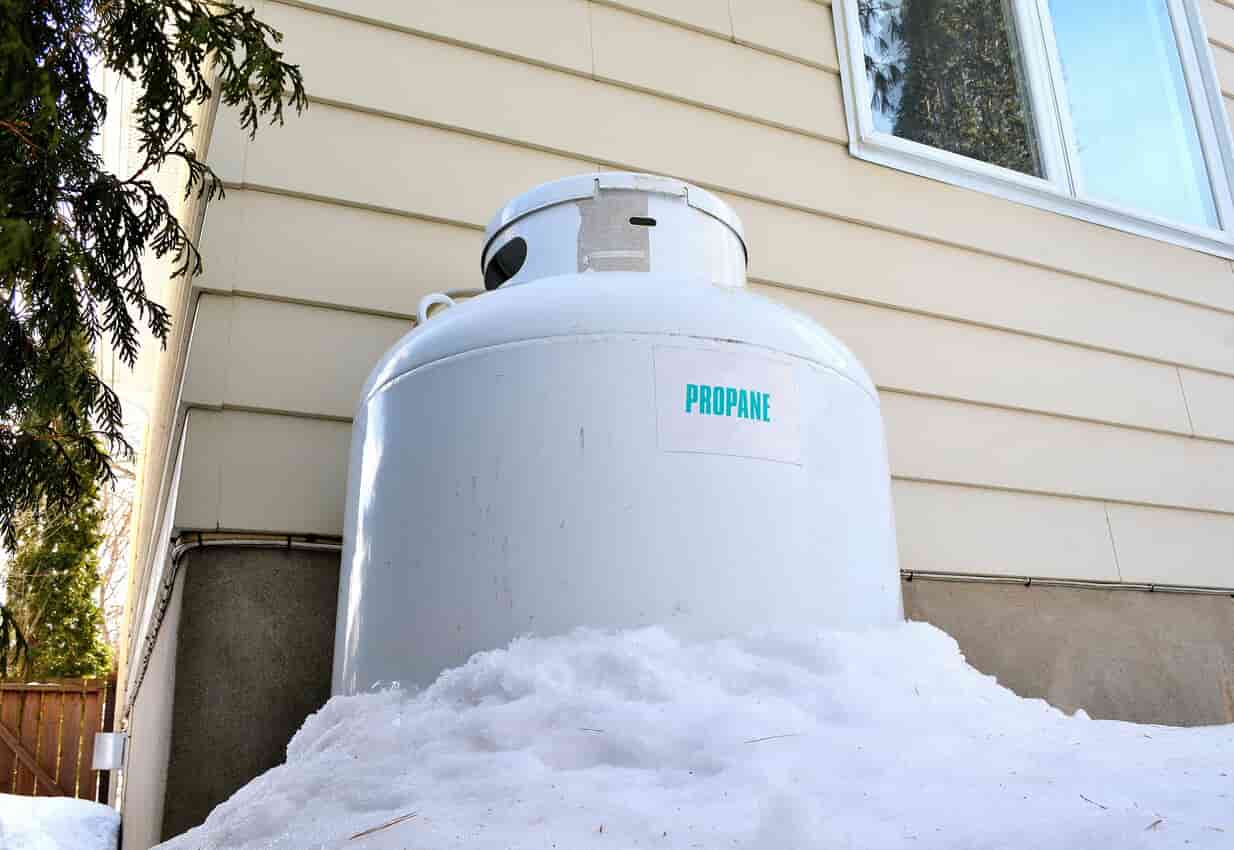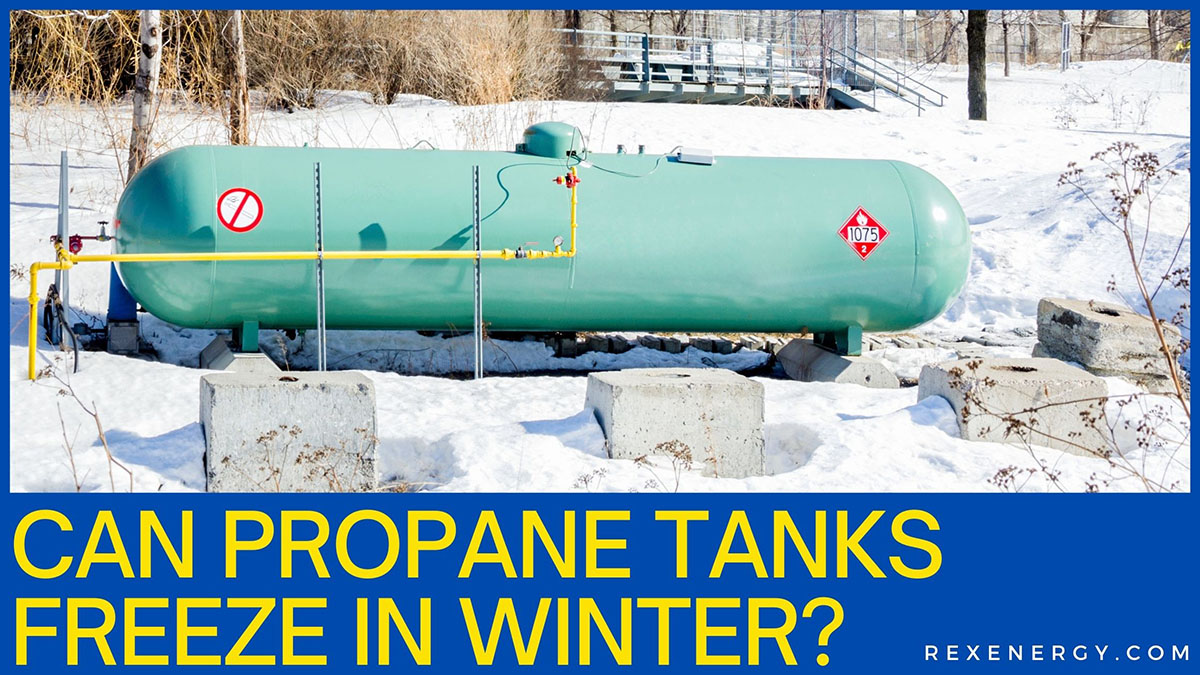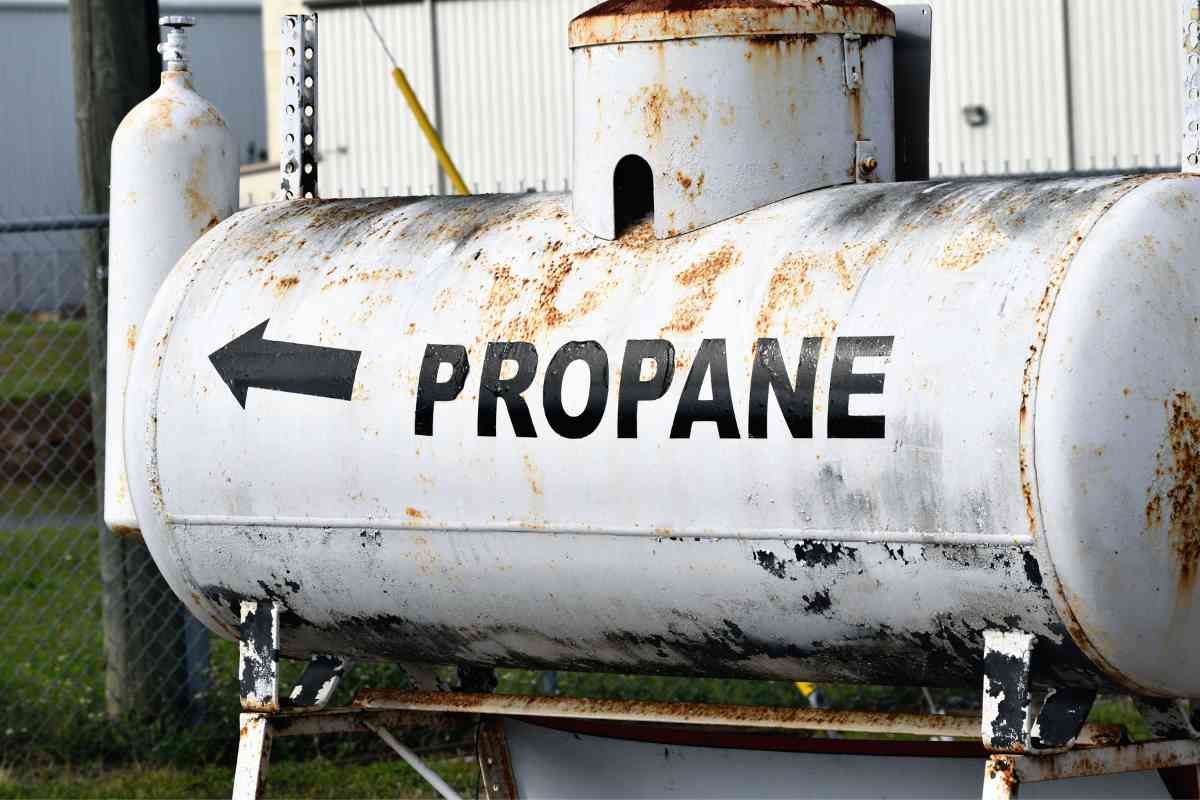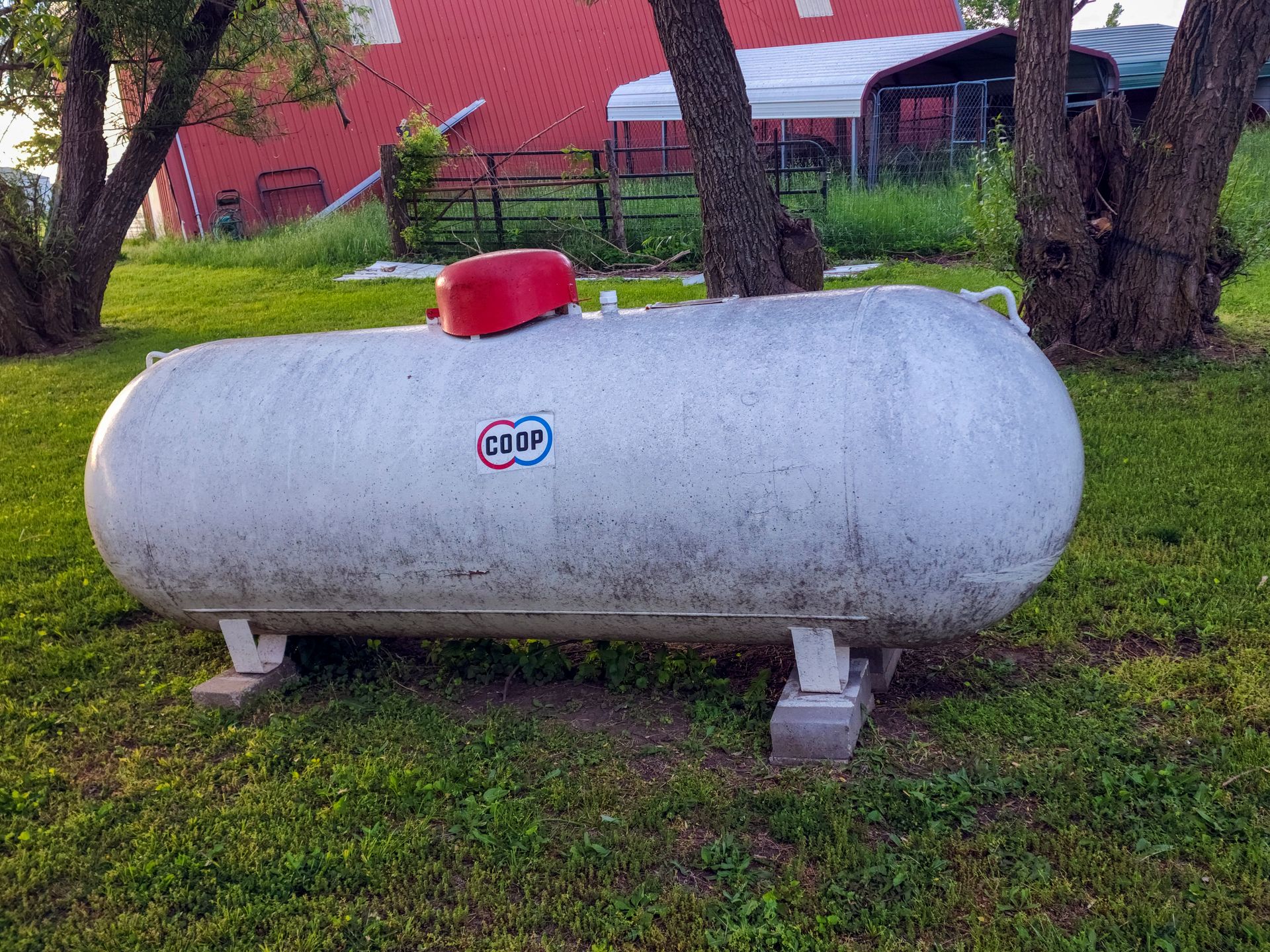Is It Bad If A Propane Tank Freezes

Propane, or liquefied petroleum gas (LPG), is a popular and efficient fuel source for heating homes, powering appliances, and even running commercial operations. However, like any fuel system, understanding its behavior under varying conditions is crucial for safety and optimal performance. One frequently asked question is: Is it bad if a propane tank freezes? The short answer is yes, it is bad if a propane tank freezes, and understanding why is vital for homeowners, HVAC technicians, and facility managers alike.
Why Propane Tanks Appear to Freeze
It's important to clarify that propane itself doesn't actually "freeze" in the traditional sense within a properly functioning tank. The freezing point of propane is a frigid -306°F (-188°C). What people typically observe and describe as a "frozen" propane tank is actually the result of rapid vaporization and the resulting decrease in tank pressure and potentially the formation of ice or frost on the tank's exterior.
Here's the science behind it: Propane exists as a liquid under pressure within the tank. When you use propane, it's drawn from the tank as a gas. This gas is formed through a process called vaporization, where the liquid propane converts to a gaseous state. This vaporization process requires heat. The propane draws this heat from the tank itself and the surrounding environment. The more propane you use, the faster the vaporization occurs, and the more heat is drawn from the tank and its surroundings. If the draw rate is high and the ambient temperature is low, the tank can become significantly colder, leading to:
- Frost or Ice Formation: Moisture in the air around the tank can condense and freeze on the cold surface, creating the appearance of a frozen tank.
- Pressure Drop: The rapid cooling can reduce the vapor pressure inside the tank, making it difficult for appliances to receive enough propane to operate efficiently.
The Role of Ambient Temperature and Usage Rate
The severity of this cooling effect depends largely on two factors: ambient temperature and the rate at which propane is being used. During extremely cold weather, the tank has less external heat available to replenish what's being lost during vaporization. A high usage rate, such as when running a furnace, water heater, and other appliances simultaneously, exacerbates the cooling effect. Consider a homeowner using a propane furnace extensively during a polar vortex, while also running a propane-powered backup generator. This high demand, coupled with sub-zero temperatures, significantly increases the risk of pressure drop and exterior ice formation.
The Dangers of a "Frozen" Propane Tank
While the tank itself isn't truly frozen, the associated problems can pose significant risks:
- Appliance Malfunction: Reduced vapor pressure can cause appliances to operate inefficiently or shut down altogether. A furnace might struggle to maintain temperature, leading to discomfort and potential pipe freezing in the home. A gas stove might produce a weak flame.
- Regulator Freeze-Up: The regulator, which controls the flow of propane from the tank, can also freeze if moisture is present. This can lead to a complete blockage of propane flow.
- Potential for Leaks: While rare, extreme temperature fluctuations can stress the tank's seals and connections, potentially leading to leaks. This is a serious safety hazard.
- Inefficient Vaporization: The rate of vaporization slows down significantly in a very cold tank, which may not meet the demands of connected appliances.
Preventing Propane Tank Issues in Cold Weather
Fortunately, there are several steps homeowners, technicians, and facility managers can take to prevent propane tank issues during cold weather:
- Tank Size Matters: Larger tanks have a greater surface area for heat absorption, making them less susceptible to freezing than smaller tanks under the same usage conditions. If you consistently experience issues with a smaller tank, consider upgrading to a larger one.
- Keep the Tank Full: A full tank has more liquid propane, which takes longer to cool down than an almost empty tank. Regular refills, especially before periods of extreme cold, are crucial.
- Clear Snow and Ice: Ensure the tank and regulator are free from snow and ice accumulation. This allows for better air circulation and heat absorption.
- Sunlight Exposure (Carefully): If possible, position the tank in a location that receives some sunlight. However, avoid creating a fire hazard by placing flammable materials near the tank. Do not use direct heat sources like heat lamps or open flames to warm the tank. This is extremely dangerous.
- Propane Tank Heaters or Blankets: In extremely cold climates, consider using a UL-listed propane tank heater or insulated blanket to help maintain tank temperature. These devices are designed to provide a gentle, controlled heat source.
- Reduce Propane Demand: If possible, try to reduce your propane consumption during extremely cold periods. This can be achieved by supplementing your heating with other sources, such as electric space heaters (used safely, of course).
- Regular Inspections: Have your propane system professionally inspected annually to ensure all components are in good working order and there are no leaks. A qualified HVAC technician can identify potential problems before they become major issues.
Understanding BTU Output and Tank Sizing
A crucial aspect of preventing "frozen" propane tanks is understanding the relationship between the BTU (British Thermal Unit) output of your appliances and the vaporization capacity of your tank. Each appliance has a specific BTU rating, which indicates the amount of energy it consumes. The propane tank, in turn, has a vaporization capacity, which is the rate at which it can convert liquid propane into gaseous propane. This capacity is affected by tank size and ambient temperature.
For example, a typical residential furnace might have a BTU input of 80,000 to 100,000 BTU/hour. A water heater might consume 40,000 BTU/hour. If you're running both appliances simultaneously, you're placing a significant demand on the propane tank. If the tank is undersized or the temperature is too low, it may not be able to vaporize propane fast enough to meet the demand, leading to a pressure drop and appliance malfunction. An HVAC technician can perform a load calculation to determine the appropriate tank size for your specific needs.
Addressing a Frozen Propane Tank
If you suspect your propane tank is experiencing freezing issues, here's what to do:
- Do Not Use Open Flames: Never use a torch, hair dryer, or other open flame to thaw a frozen propane tank or regulator. This is extremely dangerous and could cause an explosion.
- Pour Warm Water (Cautiously): You can carefully pour warm (not hot) water over the regulator to help thaw it. Avoid pouring water on the tank itself, as this can worsen the problem by causing the propane to cool further as it evaporates the water.
- Contact a Professional: The safest and most reliable approach is to contact a qualified propane technician. They have the expertise and equipment to safely diagnose and resolve the problem.
Propane vs. Other Heating Options: Cost, Efficiency, and Lifespan
When considering heating options, propane offers several advantages, but it's essential to compare it with alternatives like natural gas, oil, and electricity.
- Cost: Propane prices can fluctuate depending on market conditions and geographic location. While propane can sometimes be more expensive than natural gas (where available), it's often more cost-effective than oil or electricity, particularly in areas where natural gas is not accessible.
- Efficiency: Propane furnaces and appliances can achieve high efficiency ratings, often exceeding 90% AFUE (Annual Fuel Utilization Efficiency). This means that 90% of the fuel's energy is converted into usable heat.
- Lifespan: With proper maintenance, propane furnaces and appliances can have a lifespan of 15-20 years or more. Propane tanks themselves can last for several decades with regular inspections and care.
- Environmental Impact: Propane is a relatively clean-burning fuel compared to oil, producing fewer greenhouse gas emissions.
Ultimately, the best heating option depends on your individual needs, budget, and location. Consult with an HVAC professional to determine the most suitable and cost-effective solution for your home or business. They can evaluate your specific requirements, assess available fuel options, and recommend a system that meets your needs and provides reliable, efficient heating for years to come. Properly sized and maintained propane systems are a safe and efficient solution for many homeowners and businesses. Understanding the potential issues, especially those related to cold weather, is critical for ensuring safe and reliable operation.










